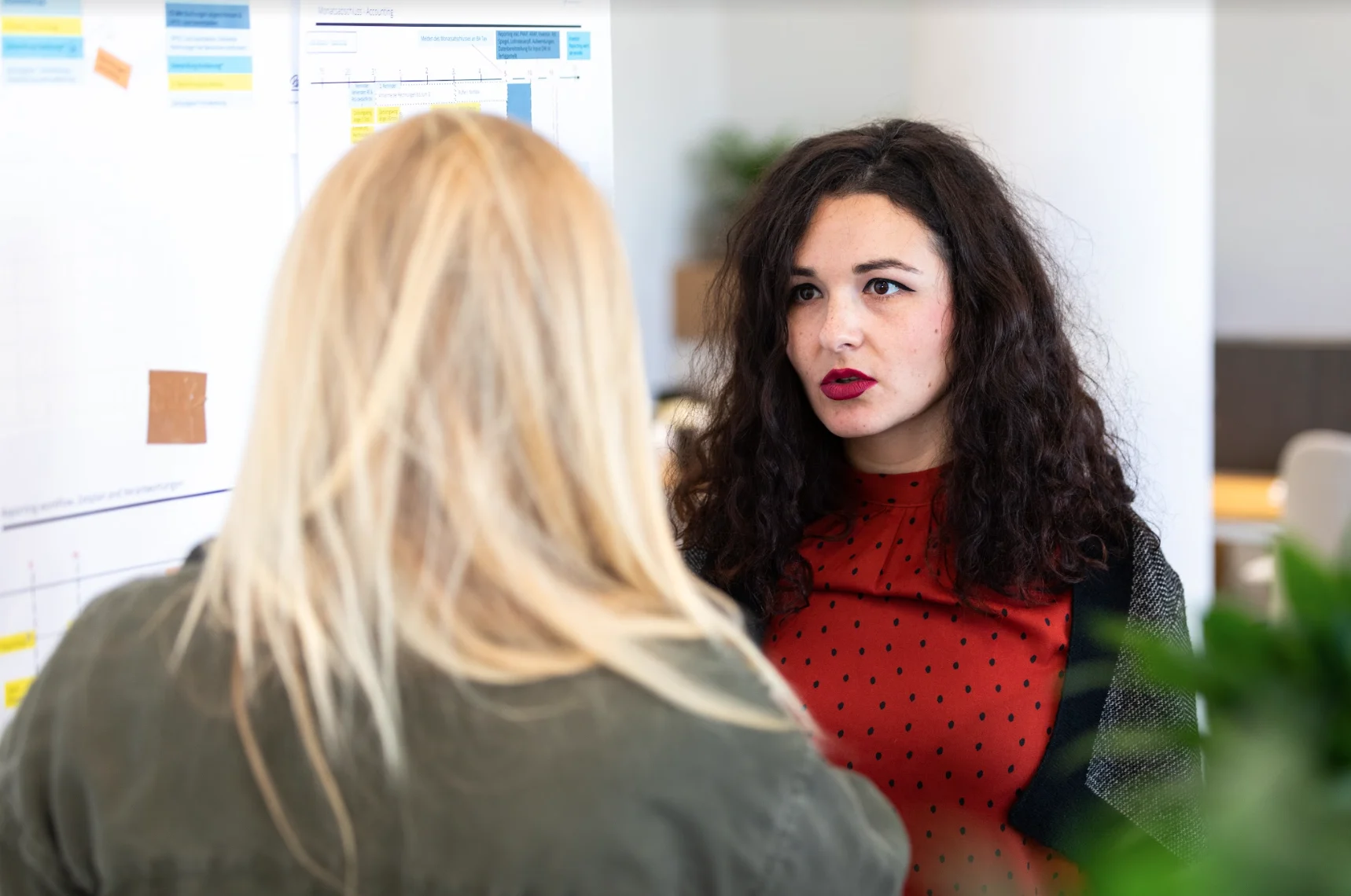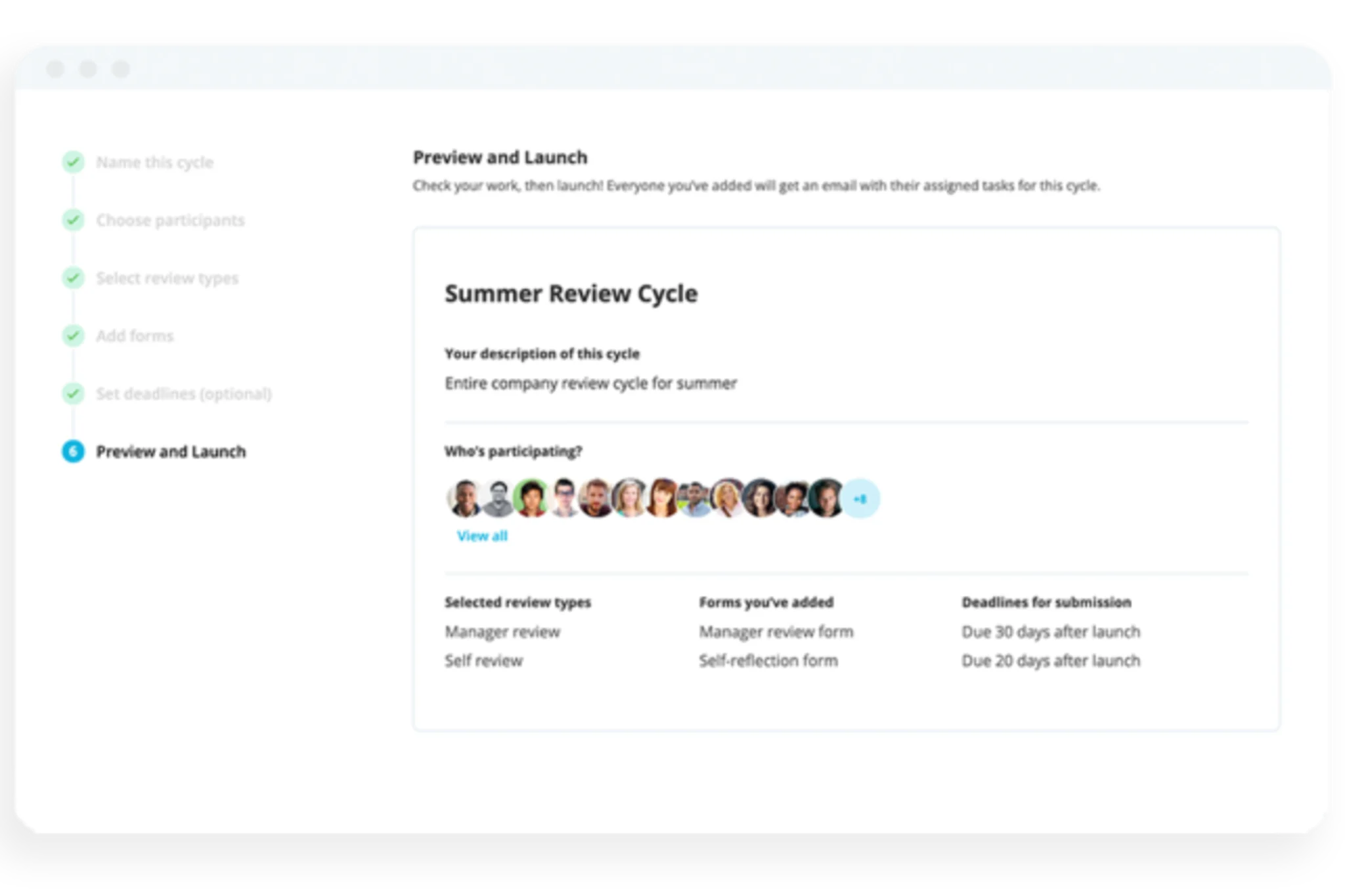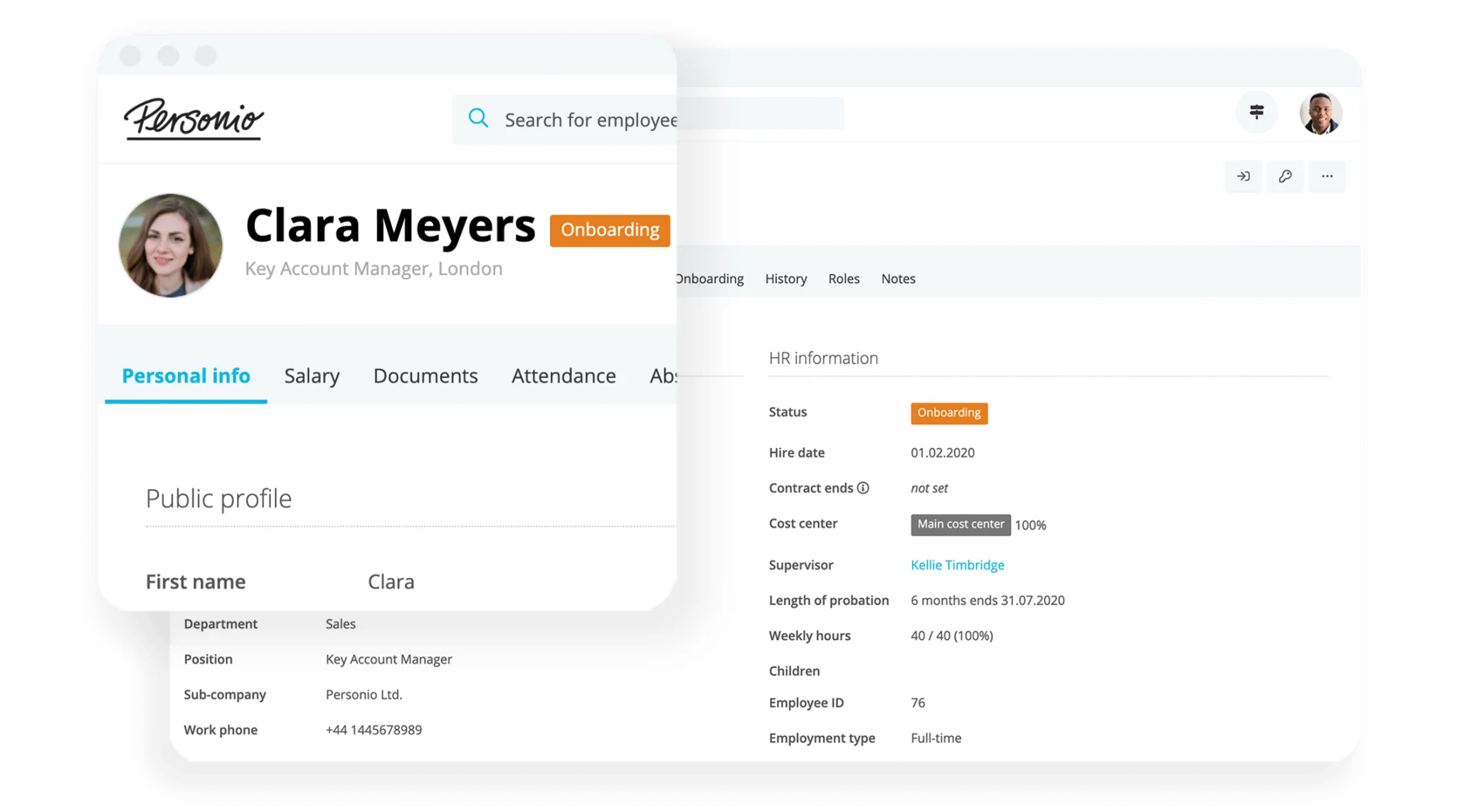How To Properly Deal With Grievances at Work

When an employee is unhappy at work, they may go as far as to raise a work grievance. When this happens, it’s time to take action, fast. Read on to discover more about grievances at work and how to deal with employee grievances properly.
Address potential issues with transparent performance processes thanks to Personio.What Is an Employee Grievance?
An employee grievance consists of when an employee raises a formal complaint about a violation of workplace policy, contract terms, bullying in the workplace or any issue serious enough to lodge a formalised complaint.
The grievance at work process typically consists of a complaints procedure (usually via their boss or HR) to talk about injustice in the workplace. This can be a real injustice or something they believe is unfair, whether the company perceives it like that or not.
When an employee accuses you, their boss, the company or anyone else in the working context of violating their rights or treating them unfairly, you need to take this seriously.
What Are the Types of Grievances at Work?
Typically, four types of grievances in the workplace are raised by employees:
Complaints about unsatisfactory working conditions
Concerns or disputes relating to payment or benefits
Frustration with too much work
Feeling unhappy due to bullying, harassment, discrimination in the workplace or other factors.
1. Working Conditions
Employees have the right to work in safe environments. This is enshrined in Health and Safety (H&S) law in the UK. As the quote below from the Health and Safety Executive (HSE), the UK authority on all things H&S-related describes, employers have a duty of care to their employees.
2. Payment or Benefits
In most circumstances relating to payment, UK law is very clear about minimum payment requirements, including when an employee is sick (Statutory Sick Pay and Long-Term Sick Pay), their employment is terminated (Severance Pay), they take a vacation (Holiday Pay), have or adopt a child (Maternity Pay), or are made redundant (Redundancy Pay).
When it comes to pay-related grievances, it’s wise to be properly informed about relevant local laws, and review the employee’s contract. Then follow the grievance procedures we outline below.
3. Overwork
Before Brexit, the UK followed the EU Working Time Directive which regulated how much time employees could work in a week, which paid holidays and rest periods they were entitled to and how night workers were protected. While these may be changed in due course, it’s still a good idea to follow best practices.
But, if an employee feels like they are working too long or too hard, they may end up raising a formal grievance with your company. You may already have a flexible working policy in place, be open to agile working styles and hybrid working locations, realise that employees might need to take stress leave sometimes and do various other things to ensure a good work-life balance.
When this situation becomes chronic or harmful to an employee’s mental health at work, then they may feel it necessary to raise a formal grievance.
4. Unhappiness
When employees are unhappy due to workplace bullying or harassment or discrimination (including indirect discrimination) it’s high time to address it.
Ideally, you won’t have to wait until an employee makes a grievance at work. Hopefully, you’ll notice signs of absenteeism, a higher attrition rate or even burnout before formal grievances come up.
But if you don’t, an employee grievance about happiness-related issues may be the wake-up call you may need! A healthy corporate culture knows that employee wellbeing is critical to retaining talent.
Four Examples of Grievances at Work
Here are a few examples of grievances at work that must be handled sensitively…
1. Working Conditions
An employee shouldn’t have to work in an uncomfortable, unsafe or unhealthy environment. They also need the right tools to do their job and shouldn’t have to work when they’re sick or injured. If your company violates any of these rights, expect to have a grievance raised.
2. Payment or Benefits
An employee might feel that you haven’t paid them on time, or enough. This is a legitimate grievance. Employees can also make a case for inequality if they’re paid less due to race, gender or other protected characteristics. If you haven’t paid them the benefits to which they are entitled, they are well within their rights to raise a grievance.
3. Overwork
An employee can expect to work the hours and do the tasks they were employed to do. If this varies, they may legitimately raise a complaint. Bear in mind that issues may arise over promotions, who is allocated certain projects, changes in deadlines or responsibilities and times when employees are expected to do tasks they can’t complete in the time allowed. All of these can be the subject of disputes.
4. Unhappiness
If an employee feels harassed, this is a valid cause for complaint. A variety of other issues can cause employee dissatisfaction, though. Everything from poor communication about workplace changes to external factors. Hopefully, your employee listening processes will pick these up before an employee feels the need to raise a grievance about these issues.
How Should HR Address Employee Grievances?
HR has a pivotal role to play when it comes to grievances at work. If an employee begins to go down the path of filing a grievance, HR should come in immediately to have an informal chat with that employee. If they can’t resolve the issue, the formal process needs to begin.
Keep in mind: Employees may feel incredibly anxious to have to file a grievance, so be empathetic. It’s even why, in the UK, workers have protection for reporting wrongdoing in the workplace (also known as whistleblowing).
The UK government website gov.uk says that, by law, all employers must set out a grievance procedure and share it in writing with all employees.
It must contain info about who someone with a work grievance must contact and how to get hold of them. Your grievance procedure or policy should also state:
That there can be a grievance hearing
The length of time for each stage of the process
Who to contact if the normal contact is actually listed in the grievance
How employees can appeal a decision and
Include a reminder that they can have someone with them during meetings
What happens if a grievance is raised while they’re in the middle of a
or procedure.
What Does the Grievance Procedure Look Like?
While it’s up to your specific organisation to decide exactly how to deal with grievances, here is a loose outline you can follow:
Outline Options
Formalise the Grievance
Respond
Host a Meeting
Decide On Outcomes
Take Next Steps
Let’s break each down in a bit more detail…
Outline Options
It helps to start by chatting through the issue with the employee. Hear them out, help to see if you can come to a resolution immediately, but f it’s a very serious issue (like sexual harassment or whistleblowing), then a formal grievance is in order.
It’s worth noting that even if an employee decides not to raise a formal grievance after their initial chat, it’s still a good idea to document it in some way for future reference. Over time, it might be possible to identify a pattern – either with a specific employee or if multiple employees raise similar concerns – which needs to be considered seriously and addressed.
Make sure your employees know you’ll deal with the complaint fairly and consistently, that you’ll investigate it thoroughly, give everyone a chance to have their say before a decision is made, take action as soon as possible and allow the employee to appeal against the outcome.
Formalise the Grievance
For when an initial chat simply isn’t enough. When an employee raises a formal grievance they should put it in writing. They must include details about the grievance, evidence (if available) and a statement about what they want the employer to do about it.
Respond
It’s critical to keep written records of what happens during the work grievance process. These must include what the grievance was about, any decisions or actions that were taken as a result and whether the employee appeals the grievance outcome (if they disagree with the process or result).
Don’t forget to keep all their personal information confidential during the employee grievance process and avoid making any judgements or assumptions about people. It’s also important to be sensitive to the needs and circumstances of the person who raised the grievance.
Although this process can often be quite challenging and upsetting, keep talking to the employee and keep looking after their mental health! It’s also important to remain vigilant and treat the matter seriously. For example, if they’re reporting a crime, make sure you alert the appropriate authorities (e.g. the police or the National Business Crime Centre, in the case of cybercrime). You may also need to issue the accused with a written warning if the accusation proves to be true.
Host a Meeting
Ideally, your HR team should hold a meeting within 5 working days. The employer is responsible for making sure this meeting is fair, that they consider information from all sides and that the company investigates to see if a similar grievance process has happened before.
Be sure to keep a confidential record of the meeting, evidence and decisions. During this meeting, the employee who raised the grievance should explain what happened and share any evidence. The employer will listen and ask questions.
They should also give context and discuss how it can be resolved while remaining impartial. Make sure you give copies of the meeting notes to the employer and take any next steps within the timelines your grievance procedures have stated.
Decide On Outcomes
Once the meeting has taken place, you might need to investigate what happened so you can make a fair decision. You might also need to set up another grievance meeting to follow up on any investigations.
Then it’s time to decide, based on the findings and what you have done about similar cases in the past (if applicable), what is fair and reasonable. You might decide that no further action is required – make sure you speak with the employee who raised the complaint privately if this is the case.
If you do need to take action, make sure the employee knows what steps will be taken, when, and what (if anything) they need to do during this stage.
Don’t forget that employees have the right to raise an appeal if they think this process didn’t resolve the issue or if any part of the process was wrong or unfair.
Take Next Steps
No matter what happened during the grievance procedure you must take notes and keep a written record of every stage of the process. Don’t forget to keep these confidential and only for as long as necessary, in line with relevant data privacy laws.
Keep A Clean Record of Everything with Personio
As an all-in-one HRIS, Personio offers your HR team the ability to securely store employee data, records, documents and more – all from one single source of truth. Book a demo today to see how it works, and how to keep your data secure (and compliant) with Personio.


